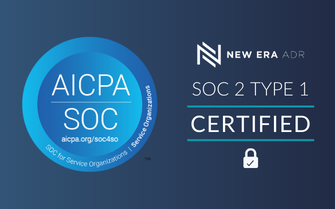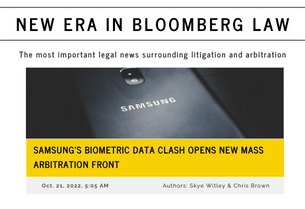
For several decades, private arbitration and mediation mechanisms have been offered up as the ideal alternatives to our costly system of civil litigation. I recall reading endless articles about the time-saving potential of arbitration as a first-year law student in 1999. But for many lawyers on the ground, the promise of efficient dispute resolution has proved illusory. Over the years, as arbitration proceedings have increased in frequency, the costs have also risen to the point where many lawyers—and even some arbitrators—lament a move to arbitration as merely a trade of one costly labyrinth for another.
And yet the promise is not lost. In fact, the legal market is now at an inflection point where recent technological advances present a unique opportunity for the legal industry to radically change its approach to arbitration. With those advances, the promised benefits of arbitration are not just within reach but are immediately accessible.
This is part of a larger technological revolution in the practice of law. As I have written elsewhere, advances in predictive analytics and communication technologies have the potential to fundamentally change how judges decide cases and even how laws are made. But, whereas those changes are still on the horizon, several advances that have the potential to dramatically change arbitration and mediation procedures are here today.
Advances in computing power and interface design present new opportunities for streamlining the preparation, organization, and decision of cases. The speed with which materials can be submitted and analyzed has increased rapidly. Parties need not wait months to present evidence and arguments to a court or arbitrator. Rather they can—if the arbitrator lets them—upload the relevant materials in a matter of days. These technologies can also transform complex legal procedures into straightforward interactions that provide opportunities for more direct and personal involvement of the actual parties to the arbitration.
Similarly, the last year has revealed huge advances in communication technology that can make long distance hearings more meaningful and more personal than ever previously imagined. Arbitrators, lawyers, and potential parties have acquired a familiarity with video conferencing and other presentation technologies that can facilitate a new level of remote arbitration. This technology will make it far easier to connect expert neutrals to geographically distant litigants—and at significantly lower cost.
Finally, the ability to collect data about past cases and use it to inform new decisions has expanded in recent years. As more and more cases are decided through streamlined arbitration, the precedent of those cases will become data that can be understood and processed in a fraction of the time and cost of traditional case research.
While the legal industry sits at this inflection point, these advances provide the opportunity for major disruption in our arbitration system. But, if history is any indicator, courts and traditional arbitration platforms will be slow to adapt. They will not lead the innovation. Rather the change will have to come from a market entrant willing to take a fresh approach to alternative dispute resolution, one that recognizes the potential to harness new technologies in order to slash costs and push for faster case resolutions without sacrificing accuracy. Only with this type of maverick innovation will the legal industry realize the promise of arbitration as a game-changing alternative to civil litigation.

Rich is the CEO and Co-Founder of New Era ADR. Prior to starting New Era, Rich was the General Counsel at Civis Analytics, a fast-growing, venture-backed data science technology company born out of President Barack Obama’s 2012 re-election campaign. He served on the executive team, led legal, cybersecurity, and compliance, and helped lead and evolve the company through rapid growth (600%+ in his tenure) and over $50M in funding.
Prior to Civis, Rich was SVP, General Counsel and Corporate Secretary at Livevol, a financial technology company that he helped to build, grow, and sell to CBOE Holdings (BATS: CBOE). Rich also serves as an advisor, board member, and investor in technology startups and venture funds and in a leadership role in the Economic Club of Chicago.
Passionate about solving the access to justice gap in the United States, Rich also serves on the national Leader’s Council of the Legal Services Corporation (a U.S. Senate-funded 501c3) and on the board of Illinois Legal Aid Online. He holds a J.D. from Loyola University Chicago School of Law and a B.S. in Bioengineering from the University of Illinois at Urbana-Champaign.




